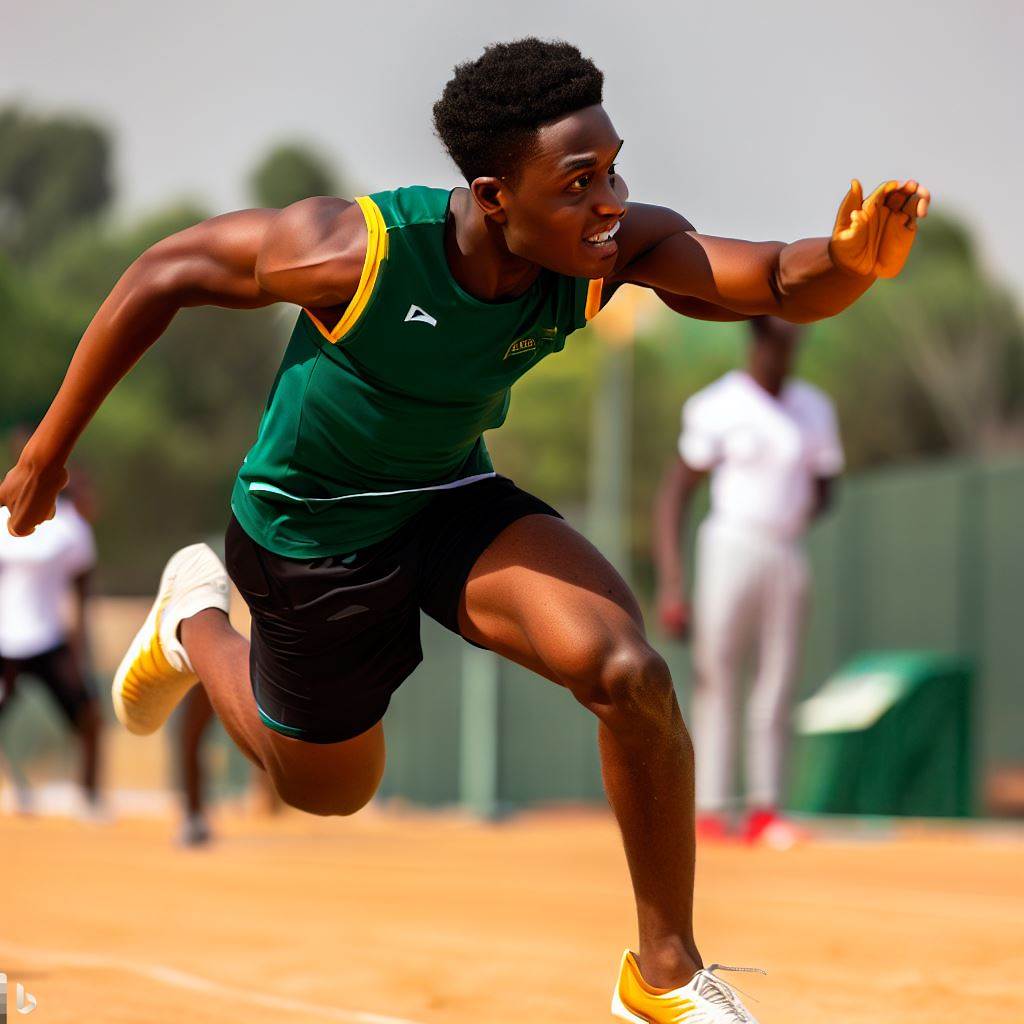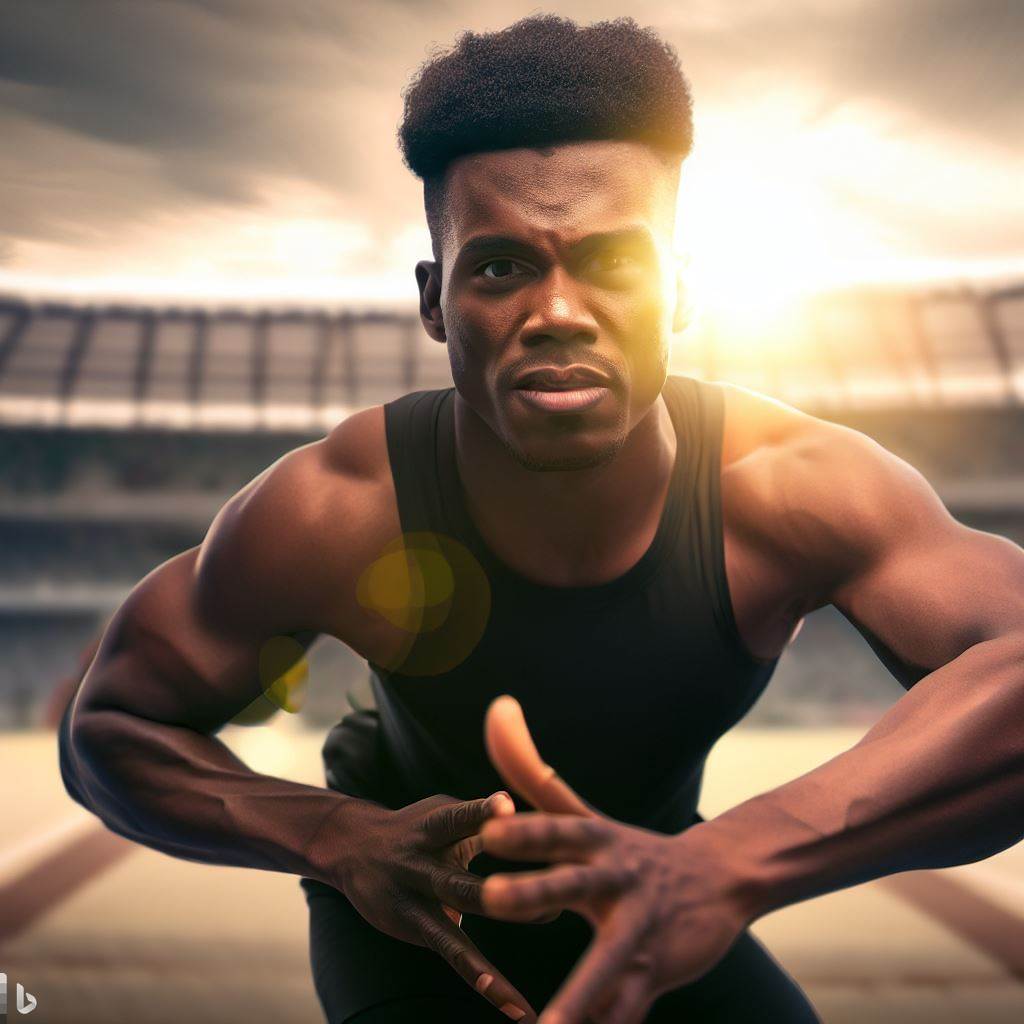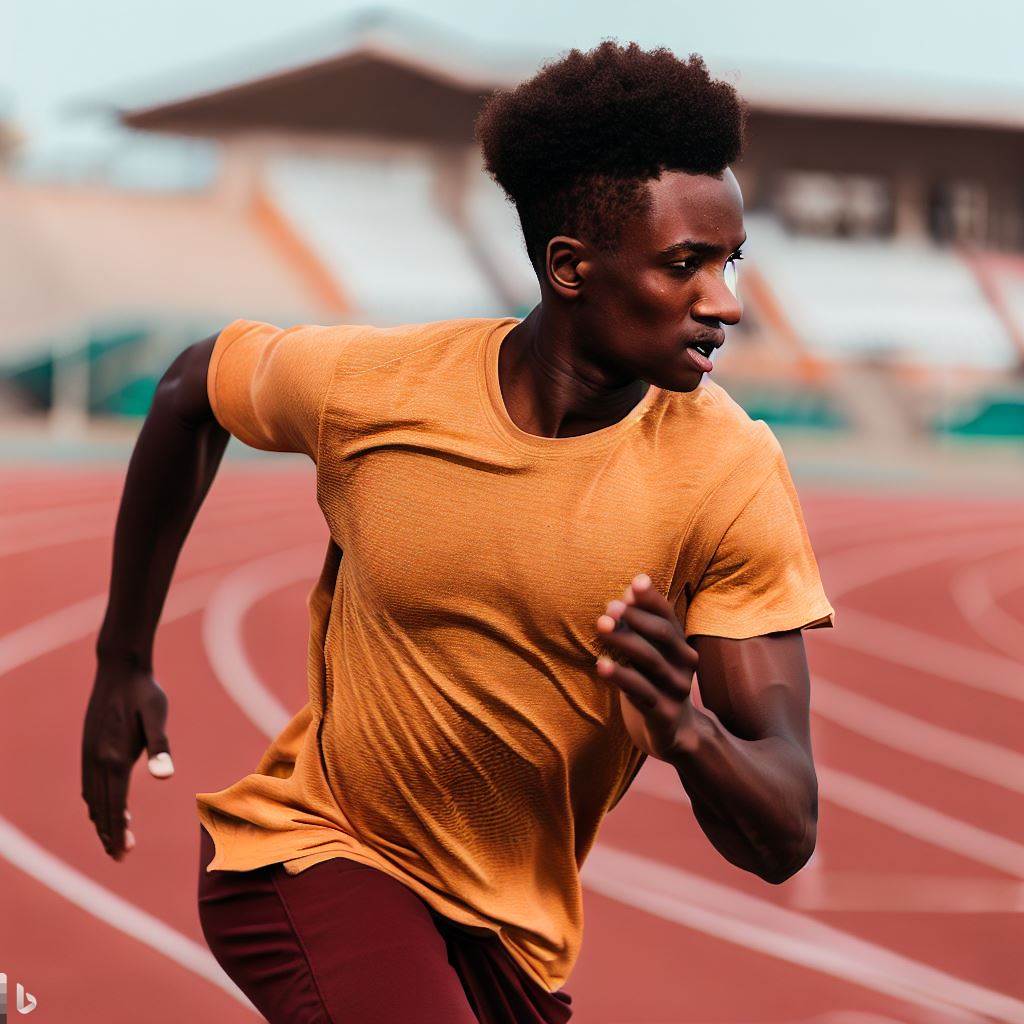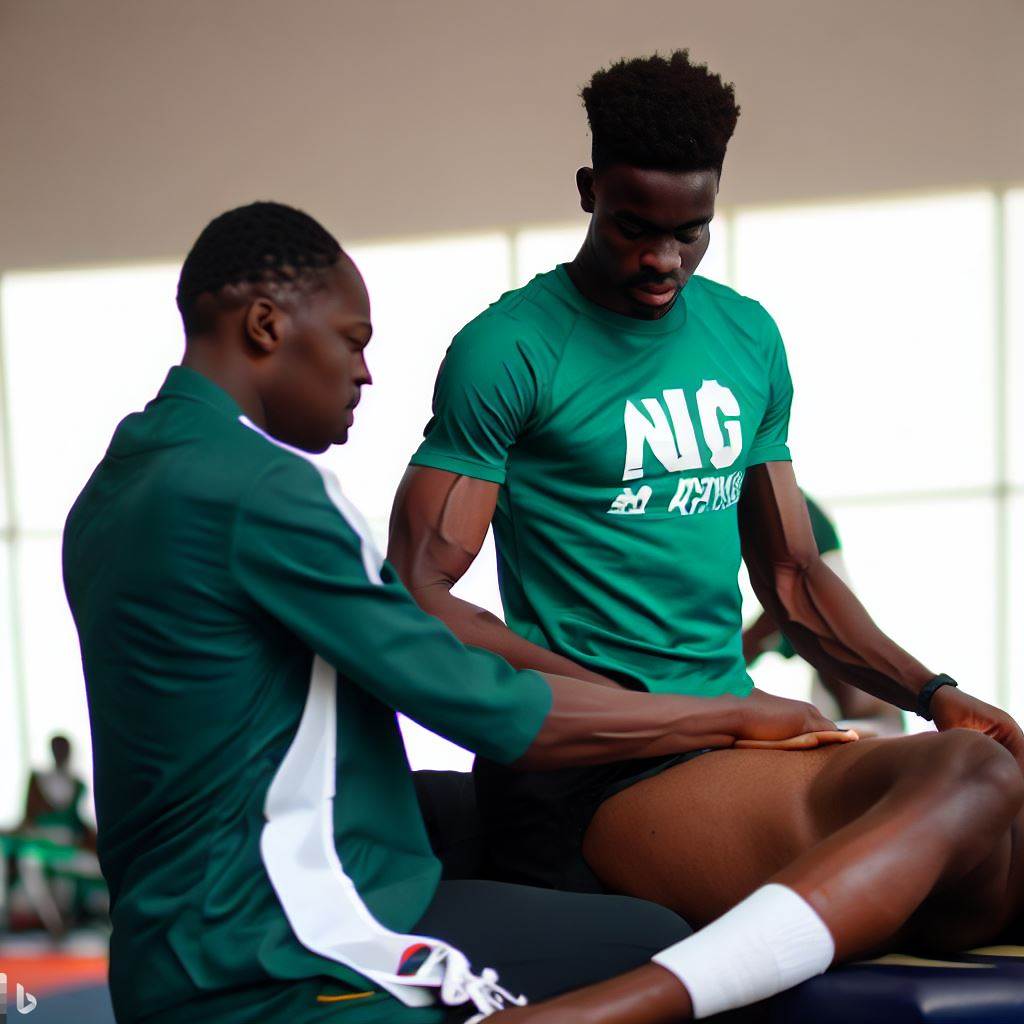Introduction
Nigeria has a vibrant sports industry with a passion for football and boxing.
The country has produced some of the world’s best athletes, such as Kanu Nwankwo, Jay Jay Okocha, and Anthony Joshua.
The sports industry generates revenue for the country’s economy and provides employment for many Nigerians.
Developing sports talent in Nigeria is crucial, creating opportunities for youth to discover and pursue dreams.
Talent programs identify and nurture natural abilities, providing necessary training, equipment, and exposure for talent development.
This blog post will explore some of the government and private organizations’ talent development programs in Nigeria.
It will discuss how these programs strive to discover and develop young sports talents and provide them with opportunities to compete at local and international levels.
Additionally, this blog post will examine some of the challenges faced in these programs and suggest ways to improve them.
Read: The Rise of Nigerian Athletes on the Global Stage
Overview of Nigeria’s sports talent development programs
Nigeria is known as a sports-loving nation, with a passionate following for various sports.
The country has a rich history in sports, including football, athletics, basketball, and boxing.
Over the years, Nigeria has developed various sports talent development programs to identify, nurture, and develop sports talent from grassroots to elite levels.
Brief history of the programs
- Nigeria’s sports talent development programs date back to the 1960s when the government recognized the importance of sports in national development.
- The first significant program was the National Sports Commission, established in 1971, to promote and develop sports talent across the country.
- Since then, the government has established various sports federations, institutes, and academies to cater to different sports and levels of talent.
Types of sports covered
- The sports talent development programs in Nigeria cover a broad range of sports, including football, athletics, basketball, boxing, swimming, table tennis, and taekwondo.
- The focus is on both individual and team sports across different age groups, genders, and regions in the country.
- The programs aim to identify and develop talent in the various sports and provide them with opportunities to compete at national and international levels.
Levels of the program (from grassroots to elite)
- The sports talent development programs in Nigeria cater to different levels of talent, from grassroots to elite.
- At the grassroots level, programs focus on identifying and developing talent in schools, communities, and local clubs.
- These programs provide basic training, coaching, and equipment to young children interested in sports and monitor their progress over time.
- At the intermediate level, programs focus on identifying and nurturing talented athletes who have shown potential and commitment.
- These athletes receive specialized training, coaching and participate in local and national competitions and are provided with opportunities to further their education.
- At the elite level, programs focus on providing intensive training and coaching to the best athletes in each sport to compete at national and international levels.
- These athletes receive specialized training, coaching, exposure to international competitions, and financial support to compete and win medals.
Challenges facing the programs
- Despite the government’s efforts to develop sports talent in Nigeria, several challenges prevent the programs from achieving their full potential.
- Poor funding and inadequate infrastructure are major obstacles that limit the quality and quantity of sports development programs in the country.
- Corruption, mismanagement, and lack of accountability also plague the sports sector, leading to inefficiencies and ineffectiveness in the use of available resources.
- Another challenge is the lack of proper talent identification and development structures, resulting in a lack of quality talent development at the grassroots level.
- Additionally, inadequate coaching, low remuneration, and inadequate welfare for coaches and athletes lead to poor performance and a high turnover of talent.
In essence, sports talent development programs in Nigeria have a rich history and aim to identify, develop, and nurture talent from grassroots to elite levels.
These programs cover a broad range of sports and cater to different age groups, genders, and regions in the country.
Poor funding, inadequate infrastructure, corruption, mismanagement, and lack of proper structures hinder sports talent programs’ quality and quantity.
Addressing these challenges is critical to Nigeria’s long-term sports talent development and global performance improvement.
Read: Understanding the Role of Coaches in Nigerian Sports
Successful sports talent development programs in Nigeria
Nigeria has a rich history in sports talent development, with various programs aimed at identifying and grooming young talents into world-class athletes.
Below are some successful sports talent development programs in Nigeria:
Sports that have produced successful athletes
- Athletics: Nigeria has produced world champions and Olympic medalists in athletics, with notable examples such as Chioma Ajunwa, Blessing Okagbare, and Falilat Ogunkoya.
- Football: Football is the most popular sport in Nigeria, and the country has produced world-renowned players such as Nwankwo Kanu, Jay Jay Okocha, and John Obi Mikel.
- Basketball: Nigeria has also made significant strides in basketball, producing players such as Hakeem Olajuwon, Al-Farouq Aminu, and Alex Nwora.
- Boxing: Nigeria has had a rich history in boxing, with notable boxers such as Dick Tiger, Samuel Peter, and Anthony Joshua.
Factors that have contributed to their success
Several factors have contributed to the success of these sports talent development programs in Nigeria. Some of these factors include:
- Government support: The Nigerian government has played a significant role in the development of sports by providing funding and infrastructure for sports talent development programs.
- Private sector involvement: Private companies have also invested in sports talent development programs, providing financial support and resources to athletes.
- Dedication and hard work: Successful athletes are disciplined and dedicated to their craft, putting in hours of practice and training to hone their skills.
- Mentorship: Seasoned athletes and coaches have played mentorship roles, guiding young talents through the learning process and equipping them with the necessary skills to succeed.
Examples of successful athletes produced by the programs
Some of the successful athletes produced by the sports talent development programs in Nigeria include:
- Chioma Ajunwa: The first African woman to win an Olympic gold medal in a field event, Ajunwa won the long jump event at the 1996 Atlanta Olympics.
- Nwankwo Kanu: A former Arsenal and Nigeria national team player, Kanu won several individual awards and helped the Nigerian team win the Olympic gold medal in 1996.
- Hakeem Olajuwon: Olajuwon is regarded as one of the greatest basketball players of all time, winning two NBA championships and two Olympic gold medals with the US Dream Team.
- Anthony Joshua: Joshua is a two-time unified heavyweight world champion and Olympic gold medalist in boxing, with an impressive record of 24 wins, 1 loss, and 22 knockouts.
Nigeria boasts a rich history in sports talent development, excelling in athletics, football, basketball, boxing, and more.
Government support, private sector involvement, dedication, hard work, and mentorship contributed to success.
These efforts produced world-class athletes like Chioma Ajunwa, Nwankwo Kanu, Hakeem Olajuwon, and Anthony Joshua.
Continuing to invest in sports talent development programs is essential to nurture the next generation of successful Nigerian athletes.
Read: Gender Equality in Nigerian Sports Professions
Challenges facing Nigeria’s sports talent development programs:
The development of sports talent in any country requires a robust and well-funded program that is focused on the identification and nurturing of young people with exceptional abilities in various sporting disciplines.
In Nigeria, however, this has been a significant challenge due to a variety of reasons.
Lack of funding
Nigeria’s sports sector is severely underfunded, and this affects the development of talent in the country.
Adequate financing is crucial to providing young athletes necessary tools and resources for full potential.
Talented athletes often lack support, leading them to find alternative means of survival.
Poor infrastructure
Nigeria’s sporting infrastructure is generally inadequate, with many training facilities and stadiums in disrepair.
Many young athletes are forced to train in substandard conditions, which hampers their progress and exposes them to injuries.
The government and private sector need to invest in modernizing Nigeria’s sports infrastructure to ensure that young talent is nurtured to its fullest potential.
Inadequate training facilities and equipment
Training facilities and equipment are also essential for the development of young talent, but these are often inadequate or outdated in Nigeria.
In many cases, athletes have to make do with archaic equipment, which limits their abilities and can lead to injuries.
Furthermore, many areas lack basic facilities like gyms and tracks, making it challenging for young people to train adequately.
Corruption
Corruption is a significant issue in the Nigerian sports sector, and it has had a negative impact on talent development in the country.
Money meant for funding youth sports development programs often ends up in the pockets of corrupt officials.
This means that young athletes are deprived of the support they need to hone their skills and achieve their full potential.
In addition, the challenges facing Nigeria’s sports talent development programs are formidable but not insurmountable.
The government, private sector, and other stakeholders must work together to find sustainable solutions to these problems.
This includes increasing funding for sports development programs, modernizing the country’s sporting infrastructure, and eliminating corruption in the sports sector.
With these measures in place, Nigeria can fully unleash the potential of its young sporting talent.

Strategies to improve Nigeria’s sports talent development programs:
Increased funding
- The Nigerian government must invest more funds in sports development programs.
- More funds dedicated to sports development will enable the country to invest in modern equipment and infrastructure.
- Increased funding will also help to attract and retain top talent in the industry.
Collaboration with private organizations and international bodies
- The Nigerian government should seek collaborative partnerships with private organizations and international bodies in sports development.
- These collaborations will bring in more resources and expertise to enhance sports development programs in Nigeria.
- It will also provide opportunities for Nigerian athletes to learn from the best in the world and serve as a platform for professional development.
Improvement in infrastructure
- The Nigerian government must invest in improving the country’s sports infrastructure.
- Upgrading existing sports facilities such as stadiums, gymnasiums, and training centers will make them more attractive to athletes and spectators.
- Modernizing infrastructure will also help Nigerian athletes to train and compete at the highest level globally.
Establishment of talent identification centers in different regions of the country
- The Nigerian government must establish talent identification centers in different regions of the country to discover young talents.
- These centers will provide young athletes with opportunities to showcase their skills and compete with their peers.
- It will also help to identify and nurture talented athletes who may not have the financial means to pursue their passion for sports.
Additionally, improving Nigeria’s sports talent development programs requires concerted efforts from the government, private organizations, and international bodies.
To achieve its full sports potential, Nigeria must increase funding, collaborate, improve infrastructure, and establish talent identification centers.
These strategies will attract and retain top talent, offer professional development opportunities, and enable Nigeria to compete at the highest global level.
To achieve its full sports potential, Nigeria should increase funding, collaborate, improve infrastructure, and establish talent identification centers.
These strategies will attract and retain top talent, provide professional development opportunities, and enable Nigeria to compete globally at the highest level.
Read: Training Programs for Aspiring Athletes in Nigeria
Conclusion
Overall, we have explored Nigeria’s sports talent development programs and have highlighted some of the main points discussed.
It is evident that Nigeria has a wealth of sporting talent that needs to be harnessed and developed.
However, there is an urgent need for the implementation of recommended strategies such as creating more sports facilities and providing adequate funding for sports development programs.
Therefore, we call on all stakeholders to support Nigeria’s sports talent development programs. This can be achieved through increased funding, better infrastructure, and training opportunities for both athletes and coaches.
As we work towards achieving our goal of developing world-class athletes, we must take decisive action today to secure a brighter future for sports in Nigeria.




